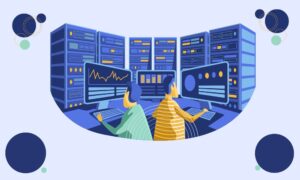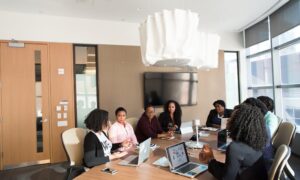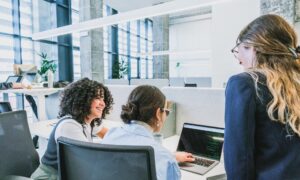The world of work is constantly changing, with new innovations in technology and business changing the nature of the workplace and even the types of jobs required. Nowhere was this more apparent than during the COVID-19 pandemic, which forced businesses to adapt to a dramatically different world. However, the pandemic was one of many events that have fundamentally changed the workplace. With that in mind, here are 5 recent developments that could change how you work.
Remote working
Remote working has been around for a while, but recent technogical advancements, coupled with the disruption caused by COVID-19, have seen it become crucial all over the world. In order to reduce the number of infections, many office employees have spent the last 18 months working from home.
It’s also telling that, in data from the global job site Indeed and reported by Wired, job postings mentioning remote work have grown by 180% – leading them to account for as much as 10% of all job posts on Indeed.
With the pandemic starting to ease recently, many businesses are starting to invite their workers back into the office, but many are continuing to allow their workers to work from home, for reasons ranging from reduced costs to increased productivity.
Flexible workspaces
Another change brought about by the pandemic is the need for social distancing. As a result, many offices will need to be reconfigured to meet these needs. Therefore, your business should think about renting a flexible workspace offering a large number of desks.
Flexible workplaces can range from open offices to co-working spaces to non-fixed workspaces that any employee can make use of. There are many benefits to flexible workspaces, including improved internet speeds, increased productivity and improved morale. A flexible workplace can transform a business, allowing them to quickly adapt to any changes, encourage collaboration between workers and reliably plan for the future. DeskFlex desk booking software gives unique solutions for booking your employees, enabling them to be ready for hybrid.
Sustainability
Companies are becoming increasingly aware of the impact of climate change and how they could help to combat it. You should therefore expect more and more businesses to adapt their workplaces to reduce their carbon footprint.
Such measures include the aforementioned remote working, while changes to commuting and an eco-friendlier workspace (reducing the amount of electricity used, for example) will be introduced as companies attempt to mitigate the effects of climate change.
Reskilling and upskilling
As mentioned earlier, rapid technological and societal changes mean that new jobs and roles will regularly become available. As a result, employees will need to adapt to an ever-changing workplace, learning new skills and taking on new responsibilities, meaning a culture of lifelong learning will become vital.
Artificial intelligence
AI algorithms are becoming more commonplace in every line of work, and while many have feared that robots would take people’s jobs, the reality is that AI will augment those jobs, essentially becoming co-workers.
Long-term, the introduction of artificial intelligence could profoundly change the way we work forever. However, in the short term, these developments are already having an impact on businesses, including automated resource management and identifying new customers.
Final Thoughts:
Forbes Councils Member Phil Sokowicz explains how legal firms, for example, can start leveraging artificial intelligence in the here and now.
With these developments already having an effect, it is clear that the way we work is changing and will continue to change dramatically.

















